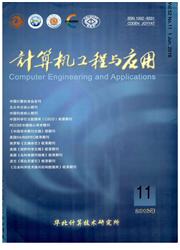

 中文摘要:
中文摘要:
针对突发性群体事件中的大规模人群聚集行为,建立了基于人群中单个个体的Agent行为模型,研究了人群规模对群体行为发展的影响效应。其中构建的Agent行为模型主要模拟了突发性群体事件中个体在人群中的三个典型行为,即非理性情绪的产生、个体之间的谣言传播以及不同类型个体之间的合作与对抗行为。通过仿真分析发现,在一定的环境下如果人群的密度越高、谣言传播的强度越大,则人群从稳定的聚集状态向暴力性骚乱行为转化的过渡过程持续时间就越短,但人群密度增大到一定程度后对群体行为的影响效应将不再显著;此外,增加现场的警力数量能够有效延缓人群的行为向群体骚乱方向转化的速度,但无法阻止群体行为稳定性的恶化。
 英文摘要:
英文摘要:
Individual's behaviors in emergency group incident are modeled using Agent method to simulate assembling phenomenon and the influence of crowd's scale to the incident's development is analyzed. The constructed Agent model is consisted of three basic functions, namely the production of rage emotion, rumor spreading among the group and confrontation strategies between individuals. The simulation findings indicate that the higher density of group members in scenario and more powerful of the rumor's spreading, the faster the individual's transmitted from watchers to mobs, but there is a threshold that the members density has no impact beyond this level. Additionally, putting more cops into the scenario can effectively prevent riot occurring, but the group emotions still deteriorate.
 同期刊论文项目
同期刊论文项目
 同项目期刊论文
同项目期刊论文
 期刊信息
期刊信息
